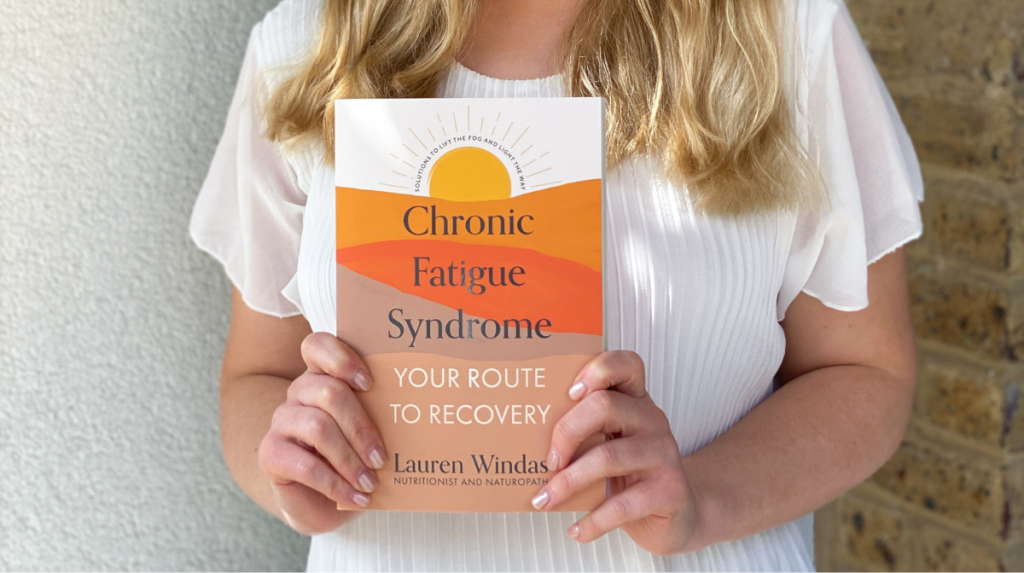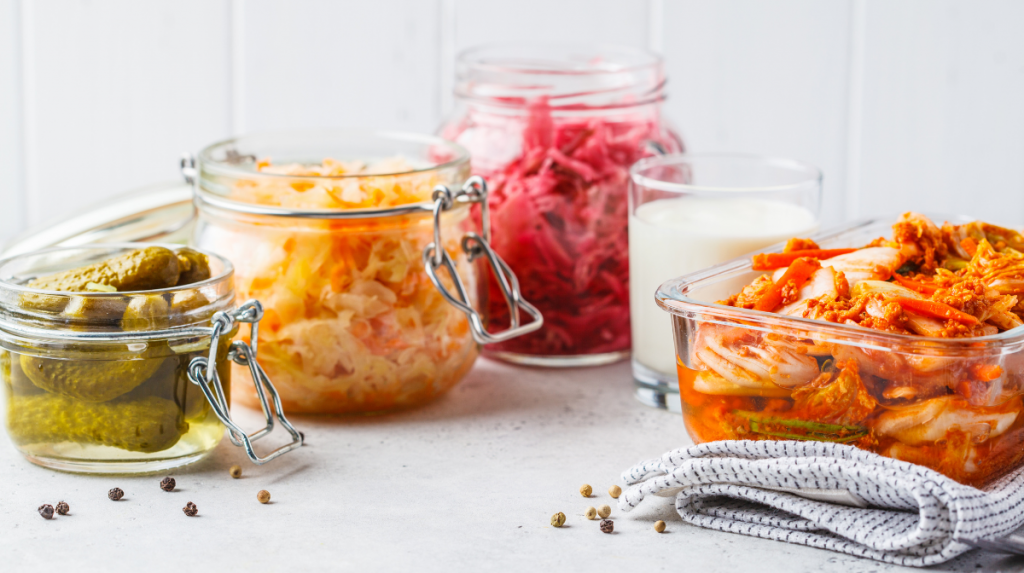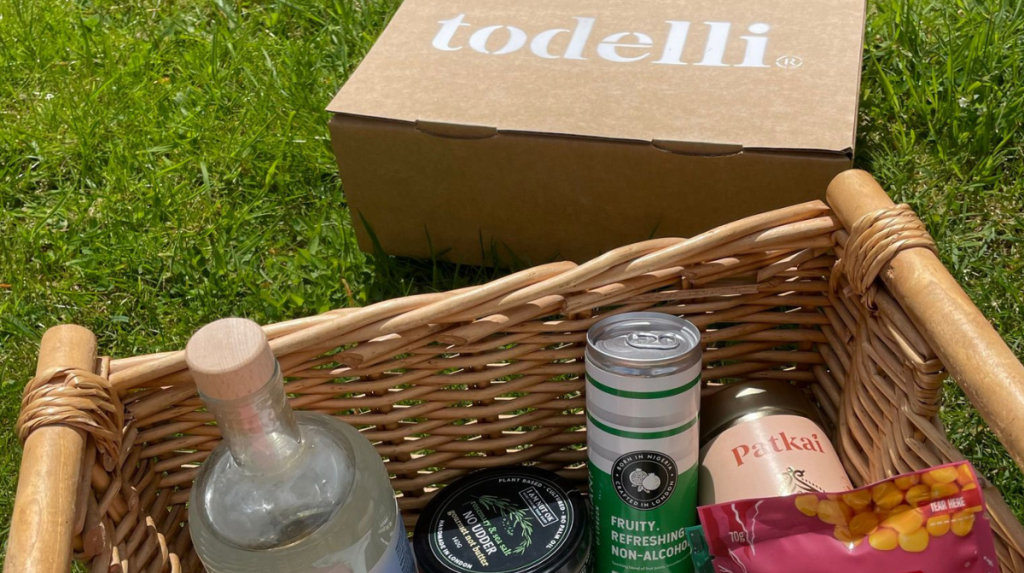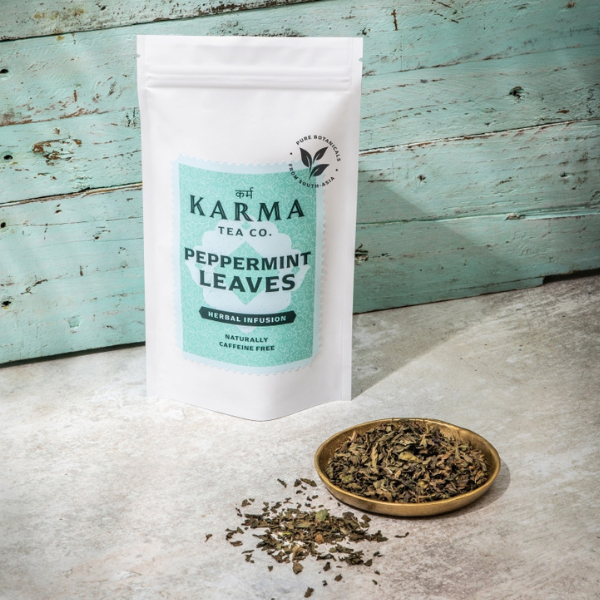We got the opportunity to speak to Lauren Windas, a registered Nutritionist (BA Hons, mBANT, CNHC), Naturopath, and Co-Founder of ARDERE, a healthy lifestyle company.
Lauren has been on her own health journey since her own diagnosis of CFS & IBS. This experience inspired her to support others battling chronic illnesses. Her book, Chronic Fatigue Syndrome: Your Route To Recovery, is available on Amazon.

Your health journey began after your diagnosis in 2012, what empowered you to reclaim your health and educate yourself on naturopathy and nutritional therapy?
When I was in the crux of my battle with Chronic Fatigue Syndrome, it was so debilitating that I couldn’t face living like this the rest of my life and after finding no help through conventional medicine, I was forced to consider alternative routes that offered me support i.e. nutrition and naturopathy. It was through this approach, as I detail in my book ‘Chronic Fatigue Syndrome: Your Route to Recovery’ that I eventually found help and managed to reclaim my health. This led me onto studying and qualifying as a Nutritionist and Naturopath myself so that I could share my knowledge and help support others going through CFS and other chronic illnesses.
What advice would you give someone who wants to start understanding their body’s nutritional needs much better?
Start by keeping a food diary: a detailed record of everything you eat and drink for at least three weeks is a tell-tale way to understand how your body assimilates different foods. Note down portion sizes, timing of meals, and any symptoms or feelings experienced after eating, as well as lifestyle factors around these such as how you are eating, menstruation or stress levels. This can help you identify patterns and understand how different foods affect your body. I would also recommend consulting with a Registered Nutritionist so that you can have one-one support from an educated health professional, to delve in deeper in terms of your unique relationship with food and determining your personalised nutritional requirements.

There’s a lot of discussion around gut health. What are common mistakes you see people make when starting their gut health journey?
Here are 7 common mistakes:
1. Overloading on Probiotics: While probiotics are beneficial for gut health, taking excessive amounts or multiple types of probiotic supplements at once can disrupt the balance of bacteria in the gut. It’s important to start with a moderate dose and gradually increase if needed, and to choose a probiotic supplement that is appropriate for your specific needs and is based on a good body of clinical evidence.
2. Ignoring Prebiotics: Prebiotics are non-digestible fibres that feed beneficial bacteria in the gut. Neglecting to include prebiotic-rich foods in your diet (such as onions, garlic, bananas, asparagus, and whole grains) can limit the effectiveness of probiotics and overall gut health improvements.
3. Excessive Use of Antibiotics: Antibiotics are necessary to treat bacterial infections, but frequent or unnecessary use can disrupt the balance of gut bacteria and cause dysbiosis. Whenever possible, explore your options or discuss with your healthcare provider to minimise the impact of antibiotics on your gut health.
4. Dietary Imbalance: A diet that is lacking in fibre, healthy fats, and a good diversity of fruits, vegetables, pulses, nuts, seeds, whole grains, herbs and spices can negatively impact the health of your digestive tract.. Aim for a diverse and balanced diet that includes plenty of plant-based foods to support a healthy gut microbiome; and remember that good gut health is built upon a foundation of diversity and rotation (therefore I would advise you incorporate new foods as much as possible rather than eating the same foods on repeat).
5. Rapidly Changing Diet: If you abruptly switch to a high-fibre or drastically different diet this can cause digestive discomfort and disrupt the balance of our gut microflora. Make dietary changes gradually and pay attention to how your body responds along the way (my motto is always “low and slow!”)
6. Stress and Lack of Sleep: Chronic stress and inadequate sleep can adversely affect gut health by altering gut motility, disturbing immune function, and the composition of our gut bacteria. Remember that the gut and brain are connected via the gut-brain axis (so is coined the phrase that ‘our gut is our second brain!’, since we have millions of neurons that exist within the GI tract). Prioritise stress management techniques and ensure adequate sleep for overall gut health improvement.
7. Not Addressing Underlying Conditions: Symptoms such as bloating, gas, or irregular bowel movements can be signs of underlying digestive disorders like irritable bowel syndrome (IBS) or inflammatory bowel disease (IBD). Consult a healthcare professional if you have persistent gut issues for proper diagnosis and treatment, and to rule out other explanations of your symptoms.

As consumers, how can we better understand what products are health fads and which ones are worth investing in?
Be Sceptical of Overly Simplified Claims: I would advise consumers to become more cautious of products that promise miraculous results with minimal effort. Often products can be touted as ‘miracle’ workers and that, by taking them alone, a huge transformation in health is achieved. Ultimately, if a product sounds too good be true then it probably is. Also, if the company is not advocating for dietary and lifestyle change alongside it then this is also a red flag to watch out for. When it comes to food supplements, for example, look for companies who avoid artificial additives and synthetic fillers, binders and preservatives, whilst also being wary of supplement companies making bold claims without any scientific evidence to back up these claims.
How do you discover new recipes to try, while ensuring it meets your nutritional needs?
When I am developing recipes, they key for me is to always look for a balanced nutritional offering. If you consume animal proteins, a balanced plate of food consists of 1 palm-sized portion of lean protein (such as chicken or fish, for example), 2 fistfuls of non-starchy vegetables, 1 fistful of complex carbohydrates and 1-2 tablespoon-sized serves of healthy fats (e.g. avocado or extra virgin olive oil). If you are vegetarian or vegan, consider that half of your plate being built up with non-starchy vegetables, and the other half consisting of your protein sources (this might be high quality dairy or eggs for those that are vegetarian or pulses, whole grains, nuts and seeds for those vegan – the key for these groups of individuals is to ensure that whilst obtaining their protein sources that they are reaping a good combination of carbs and fats, rather than just one or the other).
Also, when I am creating new recipes, its all about thinking about foods that are in season, sourced from quality food suppliers and using new ingredients so that I am obtaining as much variety and dietary diversity, which is going to feed my gut bacteria with all of the nourishment it needs! ☺
How do you discover new food products to try? Is there enough options in your local supermarket or do you have to look further afield?
Whilst I source the majority of my food from my local supermarket, there are on occasions I like to get creative with some more inventive recipes and therefore some ingredients aren’t always so readily available at your average store such as exotic or organic ingredients. In these circumstances I look online for independent retailers. One of my most recent independent purchases was kelp noodles as I couldn’t find them anywhere in my local supermarket, so had to source from more niche health-food retailer.

What advice would you give to someone who wants to lower the amount of food waste they create?
Reducing food waste is an important step towards promoting sustainability and responsible consumption. My 5 key tips:
1. Plan Meals: Take time to plan meals for the week and create a shopping list based on planned recipes. I have some fabulous recipes on https://www.ardere.com/recipes/ This helps you to buy only what you need and reduces the risk of purchasing items that might go unused and eventually wasted.
2. Buy Wisely: Be mindful of portion sizes and buy food items in quantities that can be realistically consumed before they spoil. Consider purchasing perishable items like fruits, vegetables, and dairy products in smaller amounts more frequently if needed.
3. Understand Expiry Dates: Understand the difference between “use by,” “best by,” and “sell by” dates. “Use by” indicates safety, while “best by” refers to quality. Many foods are safe to consume beyond their printed dates if stored properly and handled correctly.
4. Preserve and Freeze: Preserve excess fruits and vegetables by freezing them for later use. Many foods can be frozen, including berries, chopped vegetables, and cooked meals. Properly labelled and dated containers or freezer bags help you keep track of what’s stored to avoid food wastage.
5. Compost Food Scraps: Consider composting food scraps like vegetable peels, fruit cores, and coffee grounds instead of throwing them away. Composting turns organic waste into nutrient-rich soil that can be used to nourish plants – win-win!
Which products would you recommend from Todelli.com for our readers and why?

Organic Lean & Green Juice from Vanda’s Kitchen
I’m a big fan of green juices which contain plenty of vegetables as they can help combat oxidative stress and reduce inflammation in the body. Antioxidants play a key role in preventing chronic diseases and supporting cellular health. I particularly love that this juice is organic and green juices are a great alternative to pure fruit juices which tend to be very high in fruit sugars (fructose).

Peppermint Leaves from Karma Tea Co.
There are a multitude of reasons I love and recommend peppermint tea, here are just a few: Digestive Aid: Peppermint tea can soothe the digestive system, helping to relieve symptoms like bloating, gas, and indigestion. It relaxes the muscles of the digestive tract, promoting healthy digestion. Calming Effects: Peppermint tea has a naturally calming effect and is a carminative herb, which can be beneficial for managing stress and promoting relaxation. This can support better digestion and overall well-being. No Caffeine: Peppermint tea is caffeine-free, making it a great choice for any time of day, especially for those sensitive to caffeine or looking to reduce their intake.

Organic Turmeric Powder from Magna Mater Foods
Turmeric is one of my all-time favourite spices, largely due to it’s potent anti-inflammatory properties. Turmeric contains curcumin, a potent compound known for its anti-inflammatory effects. Regular consumption of turmeric can help reduce inflammation in the body, which is linked to various chronic diseases.

Organic Cinnamon Powder from Magna Mater Foods
Cinnamon has been shown to improve insulin sensitivity and help regulate blood sugar levels. This can be beneficial for individuals with diabetes or those looking to manage their blood glucose levels. It can also be great to have cinnamon tea to help curb any sweet-tooth cravings.

Seaweed kelp is a nutrient-dense food, providing essential vitamins and minerals such as iodine, calcium, magnesium, iron, and vitamins A, C, E, and K. These nutrients are vital for various bodily functions and overall health.

Classic Kraut from Belle & Herbs Fermentary
Sauerkraut and Kimchi are two fermented foods I like to regularly incorporate into my diet. These contain beneficial probiotic bacteria, such as Lactobacillus species. These probiotics support a healthy gut microbiome, aid digestion, and help support immune function, and are great for changing the flavour profile of a dish!
We’d like to thank Lauren for taking the time to answer our questions so thoughtfully and informatively and for sharing her Todelli recommendations. For more expert wellness advice and healthy recipes, you can follow Lauren on Instagram and make sure to check out her new book!










